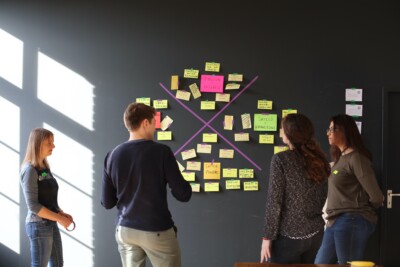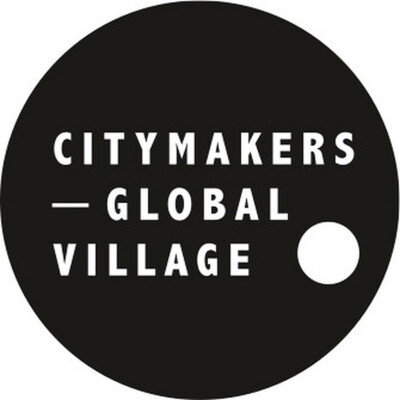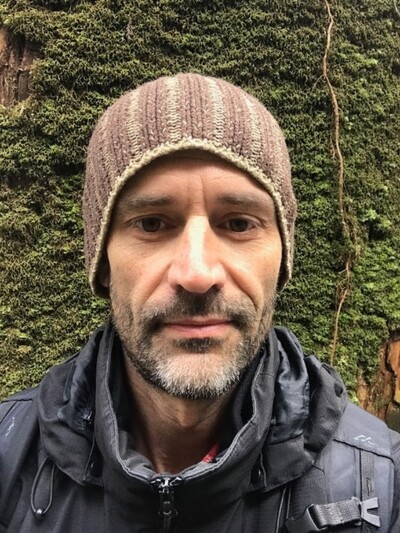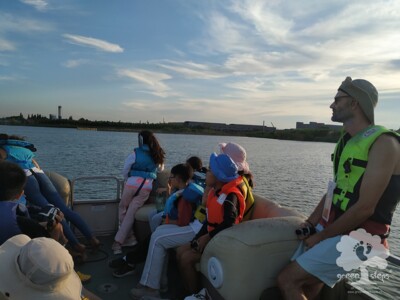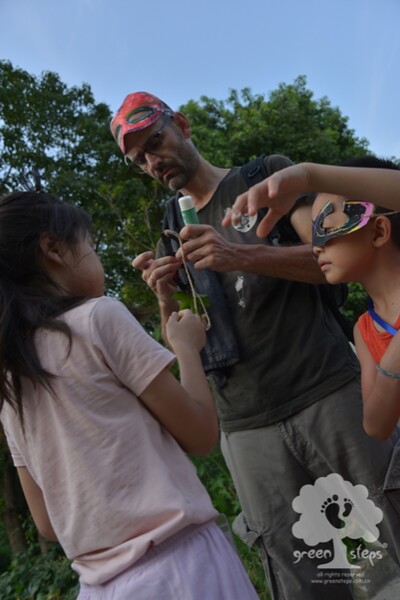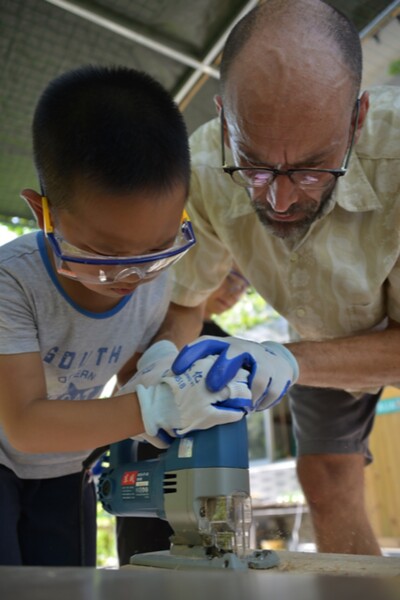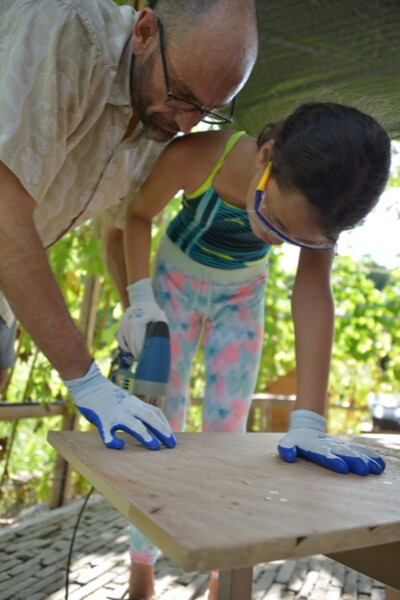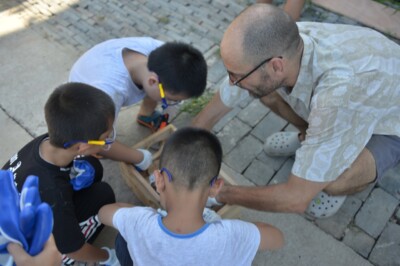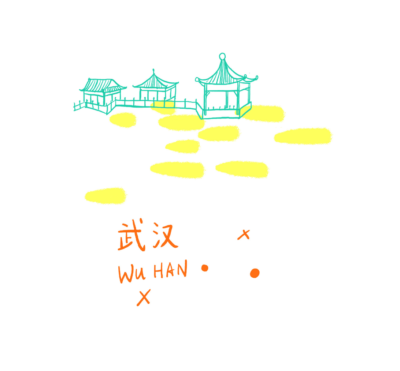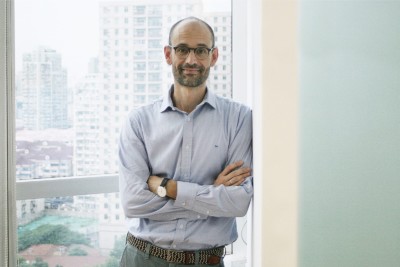On Cities and their Evolutionary Purpose – A Brief Systemic Analysis by Knut Wimberger
Let’s start with a the big picture: What do you think is currently at stake? What is our calling as city-makers, as changemakers, as responsible individuals? As societies?
What is at stake? The survival of mankind. No more, no less. If we do not manage to prototype and scale a model for a sane society, we will exterminate ourselves. Does this sound too dark? Population scientists speak of a bottleneck event which leads to the drastic reduction of a population’s size. I believe that our current concept of cities is directly connected to this. What the researcher John Calhoun called “the behavioural sink” in his famous mouse experiments is a sad reality in many of the world’s urban spaces, where high population densities and low social standards emulate the conditions of the scientist’s experiments.
Erich Fromm, one of the greatest social psychologists of all time, once wrote a book called The Sane Society, in which he analyses how social systems impact the mental health of the individual. He examines the alienating effects of modern capitalism and offers his view on how to reorganise society.
What was not so obvious in 1955 has become an undeniable truth: there is a direct correlation between mental and environmental health. Individuals who are unbalanced, frustrated or depressed compensate for their unhappiness by consuming more and thus fuel the exploitation and degradation of our planet.
Since the beginning of the industrial revolution we have observed an accelerating rise of mental health issues in developed nations. When Sigmund Freud treated Vienna’s bourgeois elite for its neurotic disorders and its discontent with civilization at the start of the 20thcentury, the global population hovered between one and two billion and had little impact on the state of the planet.
Today many populous developing nations have followed the Western growth paradigm and succeeded in moving unprecedented numbers of citizens out of poverty and into material affluence. China is only one albeit giant example of a nation which aims to concentrate more than 80% of its total population in cities – for the sake of boosting its GDP through inflated urban real estate markets.
Despite the economic benefits, a growing urban consuming class will exacerbate China’s and the world’s environmental problems. According to a World Bank study, China’s urban residents use three times as much energy as their rural counterparts. The tragic state of mental health has been exposed by the COVID-19 crisis with a reported surge in child suicides.
Changemakers are called on to take a long, hard look at rapidly urbanizing regions and assess whether cities in their current form promote human and planetary wellbeing or not.
If you were to co-create a CITYMAKERS version 2.0, what impulses would you give? What potential do you see?
I would start with an analysis of the evolutionary purpose of cities and ask if this purpose has changed over the course of human existence. In my understanding, cities have traditionally been spaces where information and knowledge were created faster than in the countryside. As described by the author Stephen Johnson in his book “Where Good Ideas Come From“, cities have always played an important role in human evolution by connecting people and thus creating a space for innovation and creativity.
In the last few decades, however, exponential technological progress has reduced the importance of cities for the creation of information and knowledge, and we, as societies, need to refocus our attention on where wisdom can be harvested. This is all the more urgent since we have been witnessing an information flood as pointed out by culture critic Neil Postman in his well-known speech “Informing Ourselves to Death.”
In some way cities have turned into deserts of consumption and many creatives are now seeking the solitude of the countryside to inspire and be inspired. Cities have lost their evolutionary value and therefore need to be rethought if they are to remain relevant in society, that is, other than as spaces which make it easy to control obedient citizens and loyal customers.
There is, however, much wisdom in what the author Erich Kästner writes in his children’s novel The Flying Classroom:
“Be they fir trees or factory chimneys, skyscrapers or mountains with eternal snow, be they cornfields or subway stations, Indian summer or telephone wires, crowded cinema palaces or green mountain lakes, be it city or country, I love both. And both deserve to be loved. What would one be without the other?”
Another way in which the evolutionary purpose of cities is being challenged is through gentrification. While earlier urban ecosystems attracted artists, creatives and young academics, gentrified cities with high rents and unaffordable real estate now stifle social mobility and deprive the ecosystem of its very meaning: to accelerate human interaction and innovation and thus generate progress.
Cities must therefore become more affordable and accessible again; at the same time country living must be made more attractive to city dwellers. High quality decentralized education and a better appreciation of work carried out in the countryside are two key ingredients for such a transformation. Some emerging technologies like 3D printing will do part of the job, but they won’t be able to substitute for the coffee houses of Vienna, Paris and Edinburgh in the 19thand 20thcenturies. People need to mingle physically in order to truly inspire each other. How will they be able to do so if city life becomes increasingly unaffordable and is ecologically and mentally not sustainable?
Erich Kästner made me wonder when we should live in cities, when in the countryside, and whether there are stages of human development which are more suitable to the one or the other. I ended up with a simple formula which combines insights from Eric Erickson’s stages of psychosocial development and Emile Durkheim’s vision of renewed social cohesion through action from occupational groups. While Erickson created a blueprint for the development of the human psyche, Durkheim foresaw a transformation of communities of kinship into communities of interest and passion.
I therefore propose rethinking the city and the country as spaces for specific age groups. Up to the age of 18 children and teenagers should ideally grow up in the countryside in order to connect properly with the planet and mature as human beings in a more stable social environment. Aged 18 to 35 we typically strengthen our identities, find intimacy and self-direct learning. It is during this period that we have the most energy to connect with many people and it is in cities that we have the opportunity to meet them. After age 35, a phase which Erickson calls generativity, i.e. taking responsibility or caring for someone else, people are usually occupied with parenting duties, which are easier to fulfill in the countryside. At this stage at the latest we should have decided what we want to do with the rest of our lives and be ready to move into smaller countryside communities.
China is a latecomer to industrialization and some of the scenarios described above are yet to play out there, but the country’s growing role in driving man-made global warming puts pressure on world leaders to develop a new international agreement on climate change that includes the booming Chinese economy. Yet it has proven difficult to reach a consensus with China on top-down policies. Bottom-up strategies might be the only realistic way to involve the Chinese population in an effort to avoid runaway climate change.
Over the years the CITYMAKERS network has grown into a real platform for European and Chinese individuals with diverse backgrounds and from all walks of life. It is a potential hotbed for such bottom-up strategies and could – if brought into play smartly – bring about a larger transformation.
